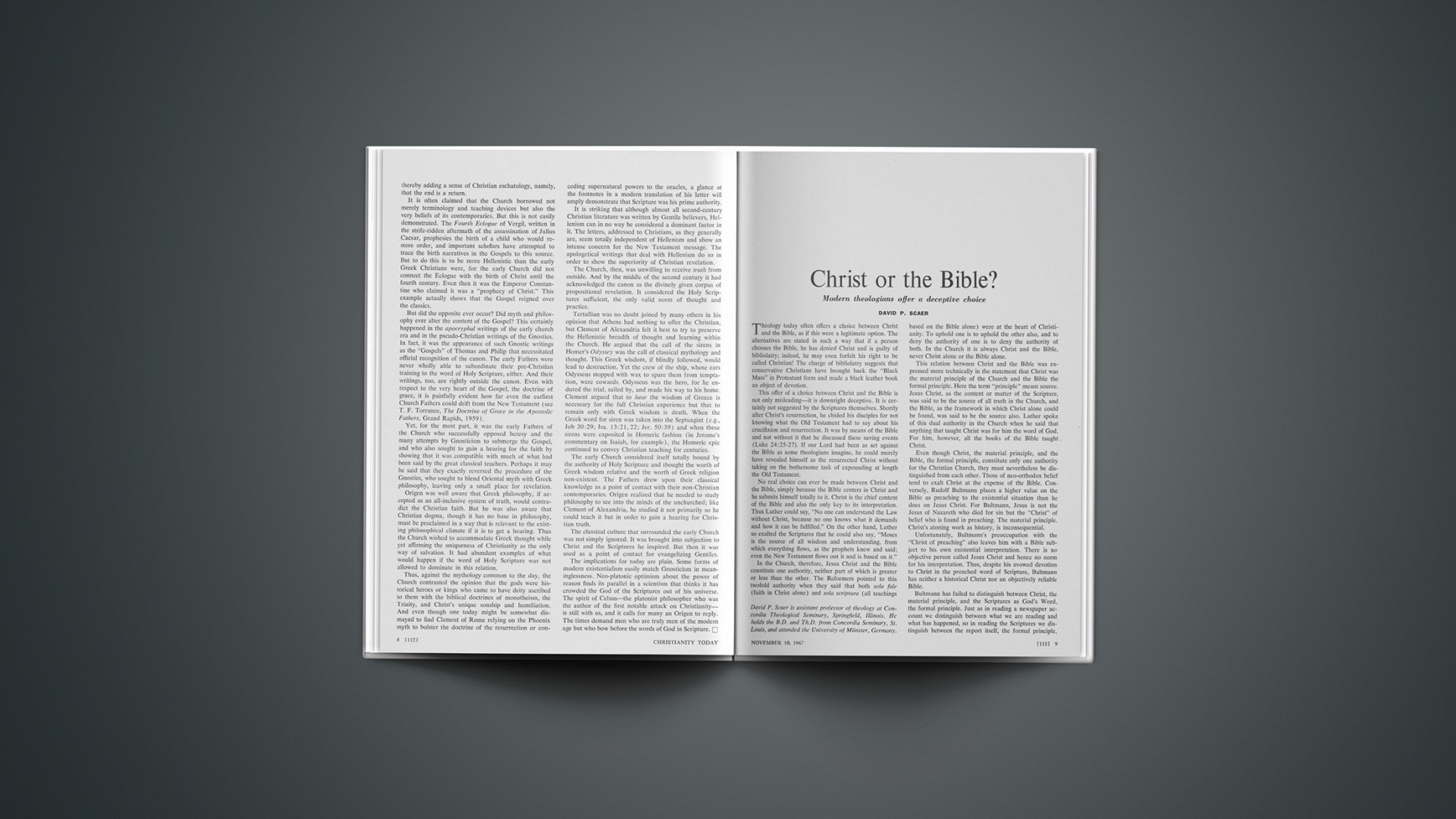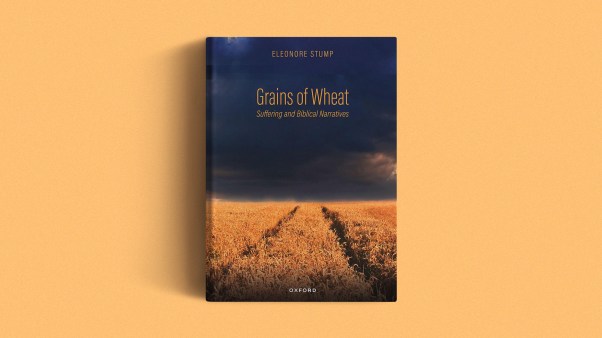Modern theologians offer a deceptive choice
Theology today often offers a choice between Christ and the Bible, as if this were a legitimate option. The alternatives are stated in such a way that if a person chooses the Bible, he has denied Christ and is guilty of bibliolatry; indeed, he may even forfeit his right to be called Christian! The charge of bibliolatry suggests that conservative Christians have brought back the “Black Mass” in Protestant form and made a black leather book an object of devotion.
This offer of a choice between Christ and the Bible is not only misleading—it is downright deceptive. It is certainly not suggested by the Scriptures themselves. Shortly after Christ’s resurrection, he chided his disciples for not knowing what the Old Testament had to say about his crucifixion and resurrection. It was by means of the Bible and not without it that he discussed these saving events (Luke 24:25–27). If our Lord had been as set against the Bible as some theologians imagine, he could merely have revealed himself as the resurrected Christ without taking on the bothersome task of expounding at length the Old Testament.
No real choice can ever be made between Christ and the Bible, simply because the Bible centers in Christ and he submits himself totally to it. Christ is the chief content of the Bible and also the only key to its interpretation. Thus Luther could say, “No one can understand the Law without Christ, because no one knows what it demands and how it can be fulfilled.” On the other hand, Luther so exalted the Scriptures that he could also say, “Moses is the source of all wisdom and understanding, from which everything flows, as the prophets knew and said; even the New Testament flows out it and is based on it.”
In the Church, therefore, Jesus Christ and the Bible constitute one authority, neither part of which is greater or less than the other. The Reformers pointed to this twofold authority when they said that both sola fide (faith in Christ alone) and sola scriptura (all teachings based on the Bible alone) were at the heart of Christianity. To uphold one is to uphold the other also, and to deny the authority of one is to deny the authority of both. In the Church it is always Christ and the Bible, never Christ alone or the Bible alone.
This relation between Christ and the Bible was expressed more technically in the statement that Christ was the material principle of the Church and the Bible the formal principle. Here the term “principle” meant source. Jesus Christ, as the content or matter of the Scripture, was said to be the source of all truth in the Church, and the Bible, as the framework in which Christ alone could be found, was said to be the source also. Luther spoke of this dual authority in the Church when he said that anything that taught Christ was for him the word of God. For him, however, all the books of the Bible taught Christ.
Even though Christ, the material principle, and the Bible, the formal principle, constitute only one authority for the Christian Church, they must nevertheless be distinguished from each other. Those of neo-orthodox belief tend to exalt Christ at the expense of the Bible. Conversely, Rudolf Bultmann places a higher value on the Bible as preaching to the existential situation than he does on Jesus Christ. For Bultmann, Jesus is not the Jesus of Nazareth who died for sin but the “Christ” of belief who is found in preaching. The material principle. Christ’s atoning work as history, is inconsequential.
Unfortunately, Bultmann’s preoccupation with the “Christ of preaching” also leaves him with a Bible subject to his own existential interpretation. There is no objective person called Jesus Christ and hence no norm for his interpretation. Thus, despite his avowed devotion to Christ in the preached word of Scripture, Bultmann has neither a historical Christ nor an objectively reliable Bible.
Bultmann has failed to distinguish between Christ, the material principle, and the Scriptures as God’s Word, the formal principle. Just as in reading a newspaper account we distinguish between what we are reading and what has happened, so in reading the Scriptures we distinguish between the report itself, the formal principle, and the actual event, the material principle. For Bultmann, “Christ” is not an event of past history reported in the Bible; the report of the Bible is itself the “Christ event” for the reader. There is for him no difference between the “word” and “Christ.” Thus he has so confused Christ, the material principle, with the word about Christ, the formal principle, that he finds no real distinction between them.
Jesus Christ, the incarnate word of God, and the Bible, the written word of God, must be distinguished from each other, but together they constitute one single authority in the church, not two. Like love and marriage and the horse and carriage, they go together. Whoever worships a “Christ” not cradled in the Bible and swaddled in its words worships a false god and is guilty of “Christolatry.” If the charge of bibliolatry applies to anyone, it must certainly applies to Bultmann, whose Christ exists only in the Bible. His Christ neither lived, died, nor rose from the dead, nor is reigning with the Father, waiting to judge the world in righteousness. For him, “Christ” lives only in words as they confront man in the existential situation. The accusation of bibliolatry applies to Bultmann and not to those who through the Bible find Christ.
The answer to the question “Christ or the Bible?” is given when we substitute “in” for “or.” The answer is “Christ in the Bible.” This is the message of the Scriptures themselves, the Protestant Reformers, and the Church in all ages.
Milton D. Hunnex is professor and head of the department of philosophy at Willamette University, Salem, Oregon. He received the B.A. and M.A. degrees from the University of Redlands and the Ph.D. in the Inter-collegiate Program in Graduate Studies, Claremont, California. He is author of “Philosophies and Philosophers.”










